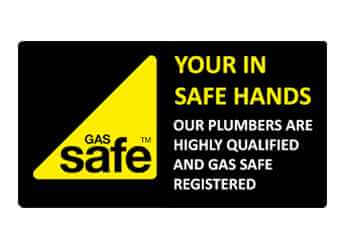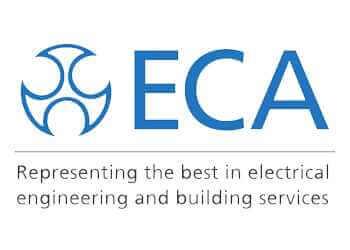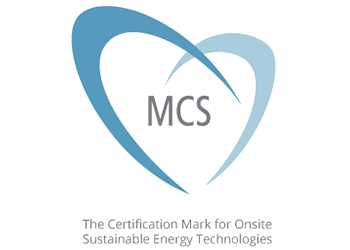Statutory Compliance
Statutory safety checks are required for both employers and landlords; they are a way of checking that the environment and procedures are meeting the required standards. An inspection should identify hazards and be the first step in introducing measures to improve conditions. It is important that they are carried out to a set standard at the appropriate frequency.
Electrical
Electrical Condition Reports
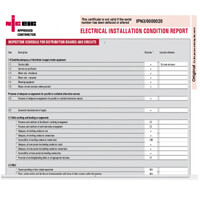 An Electrical Condition report is a report into the condition of the electrical installation and to highlight any possible safety issues according to electrical regulations BS7671.
An Electrical Condition report is a report into the condition of the electrical installation and to highlight any possible safety issues according to electrical regulations BS7671.
It is a statutory requirement for commercial properties and those that the public have access to are regularly checked and an Electrical Condition Report is performed regularly.
Electrical Condition reports should be performed according to the following timescales:
- 5 years for commercial properties. This can either consist of a 100% inspection every 5 years or broken down to a rolling programme of 20% inspections each year.
- Every ten years for domestic properties.
Electrical condition reports are also required when a property is being prepared for letting or before selling or buying a previously occupied property.
Portable Appliance Testing
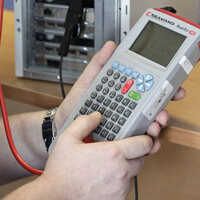 Portable Appliance Testing (PAT) is the examination of electrical appliances and equipment to ensure they are safe to use. The Electricity at Work Regulations (1989) require that any electrical equipment that has the potential to cause injury is maintained in a safe condition.
Portable Appliance Testing (PAT) is the examination of electrical appliances and equipment to ensure they are safe to use. The Electricity at Work Regulations (1989) require that any electrical equipment that has the potential to cause injury is maintained in a safe condition.
The frequency of inspection and testing depends upon the type of equipment and the environment it is used in. For example, a power tool used on a construction site should be examined more frequently than a lamp in a hotel bedroom.
Gas & LPG
Boilers
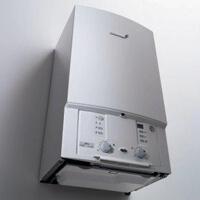 All of your gas appliances, including your gas boiler, gas cooker, and gas fire should be safety checked once a year and serviced regularly according to your manufacturer’s instructions. Getting your gas appliances checked can prevent the danger of possible carbon monoxide poisoning.
All of your gas appliances, including your gas boiler, gas cooker, and gas fire should be safety checked once a year and serviced regularly according to your manufacturer’s instructions. Getting your gas appliances checked can prevent the danger of possible carbon monoxide poisoning.
By law under the Gas Safety Regulations 1998, it is the Landlords responsibility to get a gas safety certificate every twelve months. Gas Safety checks are also required for Housing Associations, Local Authorities, Hotels and B&Bs, Colleges and Boarding Schools.
For Domestic properties the Health and Safety Executive guidelines are that all gas appliances should be regularly installed and maintained at least annually.
Fires
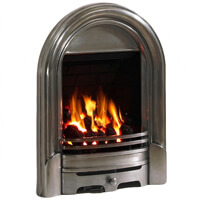 If you’re an owner, landlord or occupier of business or other non-domestic premises, you’ll be responsible for fire safety.
If you’re an owner, landlord or occupier of business or other non-domestic premises, you’ll be responsible for fire safety.
You must:
- Carry out fire risk assessment of the premises and review it regularly.
- You must keep a written record of your fire risk assessment if your business has 5 more of more people.
- Tell staff or their representatives about the risks you’ve identified
- Put in place and maintain appropriate fire safety measures
- Plan for an emergency
- Provide staff information, fire safety training and instruction
Water Heaters

Catering
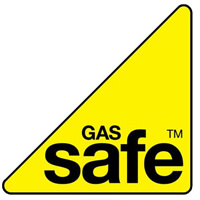 Local Authorities officers with support from the Gas Safe Register are focusing on commercial catering gas safety. They are targeting this area as it can be very serious if something goes wrong. A gas explosion or carbon monoxide from a faulty appliance may affect the public not just you or your employees.
Local Authorities officers with support from the Gas Safe Register are focusing on commercial catering gas safety. They are targeting this area as it can be very serious if something goes wrong. A gas explosion or carbon monoxide from a faulty appliance may affect the public not just you or your employees.
The law places duties on the responsible person (employer) at any place of work to ensure that any gas appliance, installation pipe work or flue under their control, is maintained in a safe condition to prevent risk of injury. Gas appliances, flues, pipework and safety devices should be inspected by a gas safe engineer once a year or as per the manufacturers recommendation.
This means you need to ensure gas equipment is installed commissioned and maintained by an appropriately qualified Gas Safe registered engineer.
Caravans
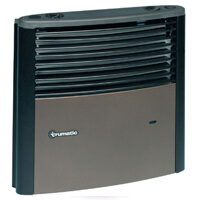 Annual gas safety checks are not mandatory in the UK, however they are increasingly becoming a requirement of many park operators. Most parks now require that privately owned static caravans have an annual gas safety check. It is always important to ensure gas equipment and appliances are regularly serviced for peace of mind.
Annual gas safety checks are not mandatory in the UK, however they are increasingly becoming a requirement of many park operators. Most parks now require that privately owned static caravans have an annual gas safety check. It is always important to ensure gas equipment and appliances are regularly serviced for peace of mind.
If you are a landlord and letting a caravan equipped with gas appliances you need to understand and comply with the law relating to gas safety. This law states that if you let a property, you must make sure all gas appliances you provide are properly maintained and a gas safety check is carried out every 12 months by a Gas Safe registered engineer.
You must give your tenants a copy of the gas safety certificate within 28 days of it being carried out or before they move in.
Boats
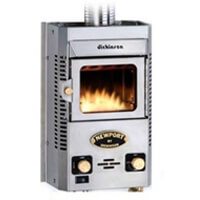 When buying a new or replacement gas appliance you should make sure that it is suitable for use on a boat and for the type of gas to be used (e.g. LPG or natural gas). All gas appliances should be regularly serviced and safety checked every year by a suitably qualified Gas Safe registered engineer.
When buying a new or replacement gas appliance you should make sure that it is suitable for use on a boat and for the type of gas to be used (e.g. LPG or natural gas). All gas appliances should be regularly serviced and safety checked every year by a suitably qualified Gas Safe registered engineer.
To comply with Gas Safety Regulations, any boat that is used for hire and reward (such as narrow boats on inland waterways) which provides residential accommodation must have an annual gas safety check carried out. Landlord’s duties apply and there are three main responsibilities: Maintenance: pipework, appliances and flues must be maintained in a safe condition.
Gas appliances should be serviced in accordance with the appliance manufacturer’s instructions. Where these instructions are not available it is recommended that the gas appliances are serviced annually unless advised otherwise by a Gas Safe registered engineer. Gas safety checks: a 12 monthly gas safety check must be carried out on each gas appliance and flue system.
A gas safety check will make sure all gas fittings and appliances are safe to use. The condition of the gas equipment and any safety defect is recognised and mentioned on the Gas Safety Record. Record: a record of the annual gas safety check must be provided to your tenant within 28 days of the check being completed or to new tenants before they move in.
If the boat is hired out for less than 28 days at a time, it is also permissible to display a copy of the Landlords Gas Safety Record in a prominent position within the boat. Landlords must keep copies of the gas safety record for two years. Note: the gas safety record should not be confused with a Boat Safety Scheme certificate.
Water Hygiene
Any water system that has the right environmental conditions could potentially be a source for legionella bacteria growth. Under general health and safety law, duty holders including employers or those in control of premises, must ensure the health and safety of their employees or other who may be affected by their undertaking.
They must take suitable precautions to prevent or control the risk of exposure to legionella. They also need to either understand, or appoint somebody competent who knows how to identify and assess sources of risk, manage those risks, prevent or control any risks, keep records and carry out any other legal duties they may have.
Risk Assessment
 Public and Private organisations and commercial building owners are required to properly manage the health risks inherent in water usage and take measures to prevent pathogen contamination. Under general Health and Safety law, Approved Code of Practice (ACoP) L8, you must consider the risks from Legionella that could affect your employees or members of the public and take suitable precautions.
Public and Private organisations and commercial building owners are required to properly manage the health risks inherent in water usage and take measures to prevent pathogen contamination. Under general Health and Safety law, Approved Code of Practice (ACoP) L8, you must consider the risks from Legionella that could affect your employees or members of the public and take suitable precautions.
As an employer or a person in control of premises you must:
- Identify and assess sources of risk
- Prepare a scheme (or course of action) for preventing or controlling the risk
- Implement and manage the scheme
- Appoint a person to be managerially responsible
- Keep records and ensure effective control
- Ensure your staff are aware of the risk
Our City and Guilds qualified risk assessors can provide a thorough risk assessment of your property to identify the risks and provide an effective tool in managing your water services affectively. Several of the mechanical team have also attended training on the treatment and disinfection of water systems using both traditional chlorine methods and more modern chemicals such a silver nitrates which have many additional benefits especially in higher risk areas like schools and care homes.
Sampling
 Where water temperatures cannot be controlled within the desired range, routine legionella sampling can be a valuable tool in managing the risk of legionella. IFS provide and implements bespoke water sampling strategies specific to your needs and budget.
Where water temperatures cannot be controlled within the desired range, routine legionella sampling can be a valuable tool in managing the risk of legionella. IFS provide and implements bespoke water sampling strategies specific to your needs and budget.
Samples collected are sent off to a UKAS accredited laboratory and tested via a traceable standard. Once the results of the samples have been received we can then recommend any remedial action as necessary.
Temperature Checks
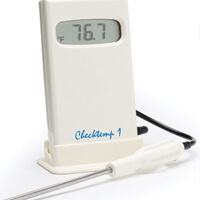 Under the Health and Safety Act and COSHH (Control Of Substances Hazardous to Health) regulations, schools and academies are legally obliged to record water temperatures on a monthly basis.
Under the Health and Safety Act and COSHH (Control Of Substances Hazardous to Health) regulations, schools and academies are legally obliged to record water temperatures on a monthly basis.
Every month the temperature from the hot taps, cold water outlets and boiler or calorifier need to be checked and recorded. Additionally, every six months a record needs to be taken of the water temperature in the cold water storage tank.
IFS can schedule and carry out the monthly and six monthly checks and keep and maintain the records. With our knowledge of legionella we can then advise you as to any possible issues and make recommendations to minimise the risk of legionella.
Disinfection
 Once water is stored it Is then open to the environment and therefore susceptible to contamination and degradation. This can allow conditions to develop which supports the growth of micro-organisms. To maintain water quality the Health and Safety Executive (HSE) recommends a regular inspection of water storage tanks, calorifiers and cooling systems and to clean and disinfect them if necessary.
Once water is stored it Is then open to the environment and therefore susceptible to contamination and degradation. This can allow conditions to develop which supports the growth of micro-organisms. To maintain water quality the Health and Safety Executive (HSE) recommends a regular inspection of water storage tanks, calorifiers and cooling systems and to clean and disinfect them if necessary.
ACoP L8 recommends the cleaning and disinfection of cooling systems twice yearly. For other domestic systems such as water storage tanks, a clean and disinfection is only necessary if routine inspection shows it to be required. However, you may decide to clean and disinfect your water systems annually as part of your maintenance program.
Control Regime
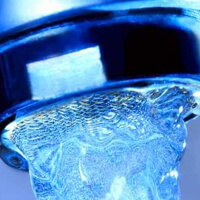 Where a risk from legionella has been previously identified, usually from a technical survey and report, a regime of control is likely to be required.
Where a risk from legionella has been previously identified, usually from a technical survey and report, a regime of control is likely to be required.
IFS believe that the level and frequency of the regime should reflect the risk level. We will work with you to establish an agreed programme and then provide suitably qualified and experienced staff to undertake the required duties.
Canopy Cleaning
Kitchen Extraction Cleaning
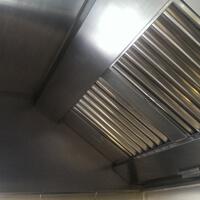 The canopy and extraction ductwork in a kitchen quickly collects dirt and grease during its normal operation. Most commercial premises are aware of the need to keep the kitchen end of the system at the canopy clean, but some overlook the actual extraction ductwork and fan equipment.
The canopy and extraction ductwork in a kitchen quickly collects dirt and grease during its normal operation. Most commercial premises are aware of the need to keep the kitchen end of the system at the canopy clean, but some overlook the actual extraction ductwork and fan equipment.
It is a requirement under TR19 environmental health legislation that all owners and operators of extraction equipment maintain and clean it to a standard and regularity to maintain a clean enviroment. The regularity of cleaning is dependant on the level of use of the kitchen and some establishments may need several visits a year to remain compliant.
IFS can offer TR19 certificated, insurance accredited, kitchen extract cleaning, enquiring you meet the environmental health legislation. This is also in line with the legal requirements of most major insurance companies. Call now for your free survey.
